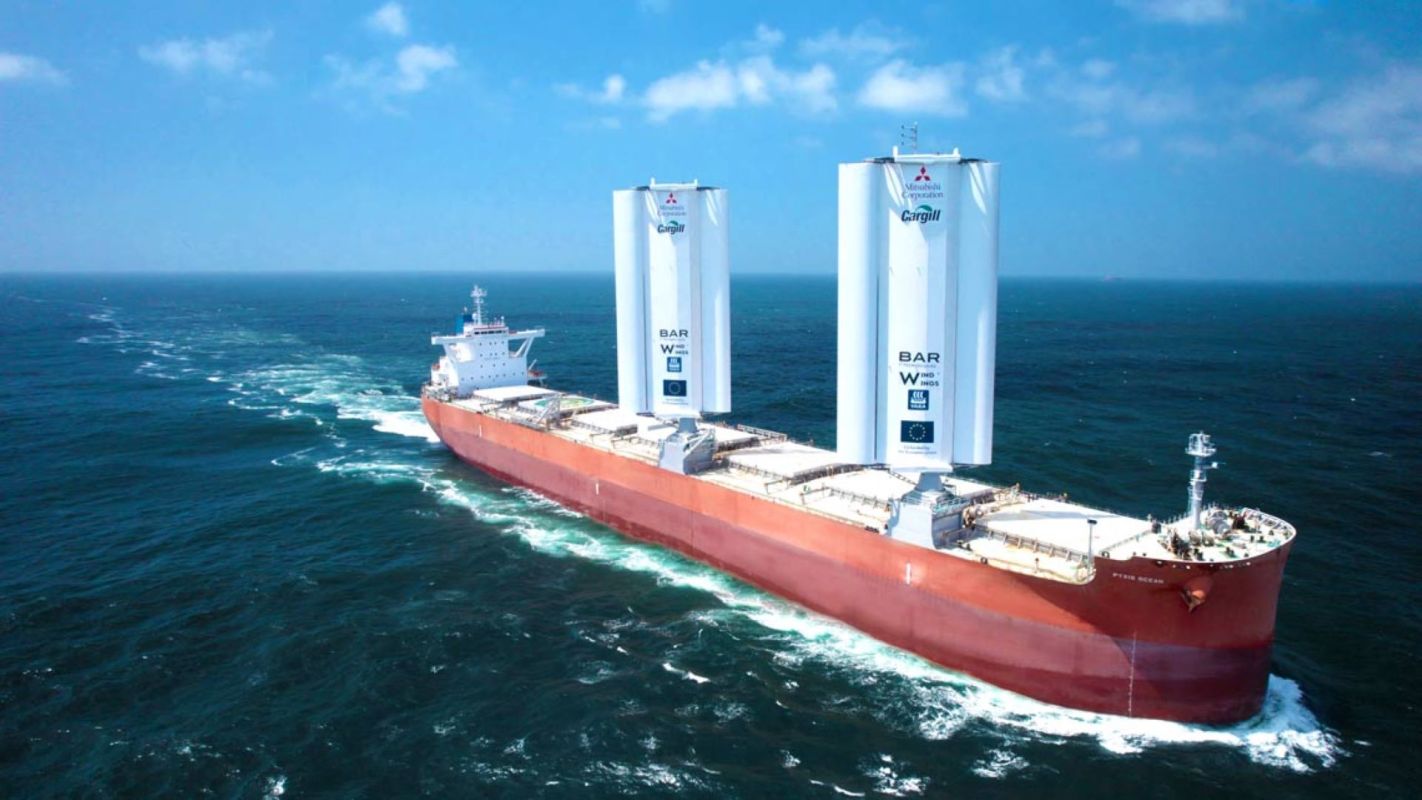Looking to the past has made a more sustainable future possible in the shipping industry, with the latest wind-powered vessel taking to the seas for its first voyage.
The Pyxis Ocean from the Mitsubishi Corporation has been retrofitted with two "WindWings" sails — developed by BAR Technologies and produced by Yara Marine — on the cargo ship's deck.
Measuring up to 123 feet (37.5 meters) high, the sails have been estimated to allow for up to 30% fuel savings on newly built ships while cutting carbon pollution.
The ship has been chartered by Cargill. Jan Dieleman, the president of the company's ocean transportation business, discussed the maritime industry's efforts to decarbonize.
"It's not an easy [process], but it is an exciting one," Dieleman said in a press release. "At Cargill we have a responsibility to pioneer decarbonizing solutions across all our supply chains to meet our customer's needs and the needs of the planet.
"A technology like WindWings doesn't come without risk, and as an industry leader — in partnership with visionary shipowner Mitsubishi Corporation — we are not afraid to invest, take those risks and be transparent with our learnings to help our partners in maritime transition to a more sustainable future."
The technology was covered in a CNN report and tweet.
A large red cargo ship named Pyxis Ocean recently set out on its maiden voyage. But unlike most others before it, this one is powered, in part, by wind. https://t.co/H0DCjCfgil pic.twitter.com/FVfczXQXsl
— CNN (@CNN) August 31, 2023
According to the BBC, the shipping industry accounts for around 2.1% of global releases of carbon dioxide (CO2). With that in mind, the sector is trying to reduce the estimated 837 million metric tons (923 million tons) of CO2 it produces, and it aims to be at net-zero for planet-warming gas production "by or around 2050."
"If international shipping is to achieve its ambition of reducing CO2 emissions, then innovation must come to the fore," said John Cooper, chief executive of BAR Technologies, in the statement. "Wind is a near-marginal cost-free fuel, and the opportunity for reducing emissions, alongside significant efficiency gains in vessel operating costs, is substantial."
The journey will take an estimated six weeks from China to Brazil, the BBC said, and Cargill noted the ship's performance will be closely monitored during that time to see if any improvements can be made.
But Cooper is bullish about the potential of wind-powered cargo ships, both in terms of lower fuel consumption and reductions in CO2 pollution.
"The reason I'm so confident is our savings — one-and-a-half tonnes [about 1.65 tons] of fuel per day," he told the BBC. "Get four wings on a vessel, that's six tonnes [about 6.6 tons] of fuel saved, that's 20 tonnes [about 22 tons] of CO2 saved — per day. The numbers are massive."
Join our free newsletter for cool news and actionable info that makes it easy to help yourself while helping the planet.









